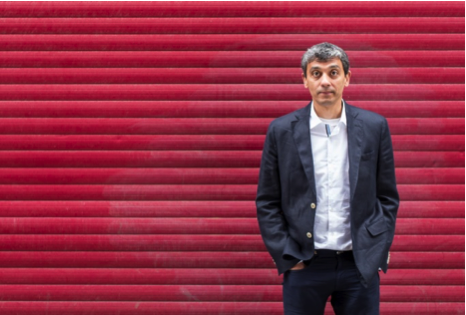David McCoy is Professor of Global Public Health at Queen Mary University London, where he’s involved in delivering a multi-disciplinary and critical undergraduate and postgraduate Global Health taught programme. In the past, he’s worked as the Director of Medact, a London-based charity that works on the underlying social, political and ecological determinants of global health. He qualified as a medical doctor from Southampton University and spent six years as a clinician in the UK and South Africa, before entering a career in public health. He spent a further seven years in South Africa working on the post-apartheid transformation of the country’s health system. Since returning to the UK, he has worked across the NGO sector, academia and the NHS (including a period as a Director of Public Health in London). He has a doctorate from the London School of Hygiene and Tropical Medicine and is a Trustee of the Centre for Health in the Public Interest.
On April 29th, 2020, David wrote the ‘COVID manifesto’ (available to read here) stressing the importance of needing a plan not only to deal with the disease itself, but the current social impacts and the legacy it will have for years to come.
What inspired you to produce the COVID manifesto?
Two things. One was the anger I felt when Priti Patel refused to apologise twice for the lack of PPE provided to frontline clinical staff. And the second because I wanted to capture the fact that a virus has done more to achieve greenhouse gas reductions than 30 years of IPCC negotiations; and that we needed to build on this ‘success’.
We have seen global pandemics like this before- for example, Swine flu. What makes COVID different?
The transmission dynamics – ie. asymptomatic and presymptomatic transmission. This makes it difficult to control. It is also very virulent for a considerable segment of the population.
Who is the manifesto aimed at/Who should implement the manifesto?
It’s aimed at civil society in general. It is idealistic and progressive – which is no bad thing. But idealistic and progressive visions will only be implemented and realised if civil society drives governments to do so.
You mention turning the crisis into an opportunity- what opportunities does COVID present?
Two things are immediately obvious: first, the slow-down in environmental destruction; and second, the appreciation for the NHS and the opportunity to learn why the reforms to the NHS of the last ten years have been so ill-advised and harmful.
What will be the legacy of COVID for low resource countries? Will it worsen or reduce global inequality?
My suggested manifesto is aimed at avoiding a worsening of inequality. The last such global crisis (the financial crisis of 2008) created a worsening of inequalities. The Covid19 economic recession must do the opposite.
What do you think is the number one thing that should be done to help low-income countries survive the pandemic?
These countries will survive the pandemic. But they will be harmed more by the effects of a global economic recession.
Within the UK, do you think the individual impact of COVID is exacerbated by inequality and income?
There is already evidence that the social and economic impacts of lockdown are much worse on poorer households.
Do you have a top tip for thriving in the lockdown?
Live in a nice, spacious house with a big private garden. Failing that, do lots of exercises. And be prepared to ask for help when you find things hard.
The views expressed are those of the author. Posting of the blog does not signify that the Cancer Prevention Group endorse those views or opinions.

